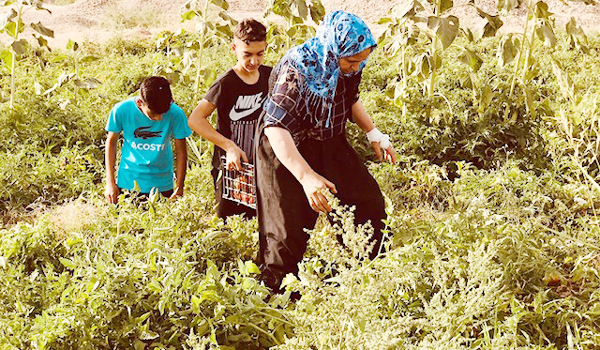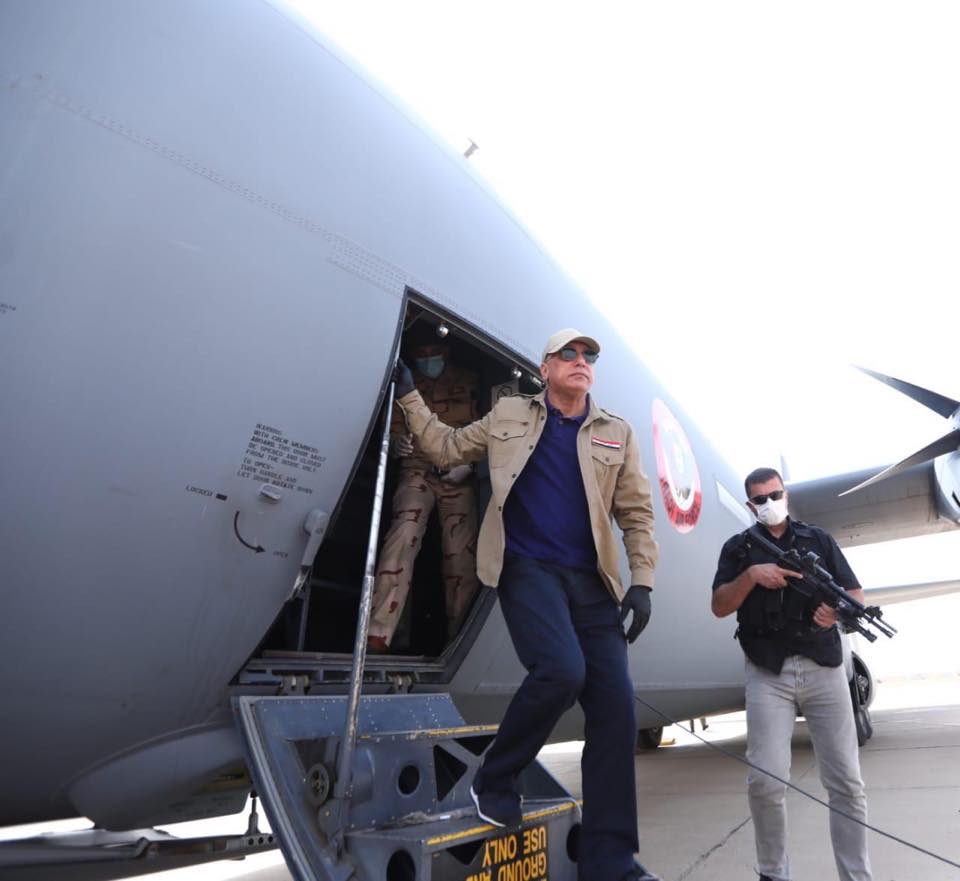Kaka’i villagers in southern Kirkuk are faced with security threats and say their life and sources of income are endangered by the insurgent groups. The ability of such groups to escalate violence came as the security forces are mandated to impose complete lockdown to contain the spread of the coronavirus.
The security problems, which have stricken fear into religious minority communities over the past several months, follow changes in plans to implement a curfew in the Kirkuk administration with regards to a complete ban on travel inside the city and between administrative units.
In just the past two months of the curfew, at least six insurgent attacks targeting Kaka’i minorities in Daquq, a district of southern Kirkuk, have been recorded. Meanwhile, 145 donums of grain have been burned in the Kaka’i villages of Zanqar and Ali Saray. [Each donum is an area equivalent to 2,500 square meters]
To allay the fear that has gripped the Kaka’i community over the past several months, Mustafa al-Kadhimi, Iraq’s new prime minister, visited in Kirkuk to launch a major offensive in south of the city; an offensive that people of the area, particularly the Kaka’i s, have long awaited.
Saad Harbiya, commander of the Kirkuk’s Joint Operation Command, June 2, 2020
Kadhimi’s visit, besides addressing several other important issues such as containing coronavirus, preparations for early elections, combating corruption, and addressing protestors’ demands, was intended to launch an offensive to eradicate the “terrorist groups” in Daquq, where the Kaka’i community has been targeted.
In advance of Kadhimi’s arrival, preparations for the offensive had been completed, with security forces clearing 17 villages in Kirkuk and Salah ad-Din encompassing an area of 738 square kilometers of Islamic State (IS) remnants.
It could have been done earlier before the evacuation of many Kaka’i villages
The offensive and Kadhimi’s visit to Daquq caught Mohammed Ibrahim, a resident of Kaka’i Ali Saray village, by surprise. However, he said, “the operation was conducted late. It could have been done earlier before the evacuation of many Kaka’i villages.”
Ibrahim is just one victim of insurgent attacks upon Kaka’i villages. He and one of his relatives remain in Ali Saray village alone, while majority of the villagers have migrated to the center of Daquq district.

Kirkuk, a woman farmer is harvesting tomatoes in a Kakai village, Daquq. Photo; Mohammed Almas
“Such an extensive operation overseen by Kadhimi himself is important to our areas because it targets locations where the attacks against us were launched,” he told Kirkuk Now, “Our areas are remote and there were no security forces there.”
Our areas are remote and there were no security forces there
The theater of operations borders the Kaka’i villages in Daquq district, which lies 44 km south of Kirkuk.
Ibrahim hopes that these new measures will restore security to the Kaka’i villages and will allow him access to his agricultural lands, which has been cut off due to the threats from insurgent groups and the curfew.
“We are happy with this operation, which should stabilize out areas.”
The announcement of the offensive followed the targeting of Kaka’i famers’ grain harvest by insurgent groups. In just the first three days of June, 44 incidents of arson against grain fields were recorded in Daquq.
According to data Kirkuk Now obtained from Kirkuk’s Civil Defense Directorate, 145 donums of wheat and barley have were burned in the Kaka’i villages of Zanqar and Ali Saray.
In the first day of the offensive, nine villages were cleared of Islamic State remnants, 30 bombs, dozens of mines of mines and other explosive materials were seized and a car was detonated.

Kirkuk, Iraqi Prime Minister, Mustafa al-Kadhimi, has landed in Kirkuk military airport, June 2, 2020. Photo: PM media office
Aziz Mohammed, a Kaka’i , said, “We hope that the operation will stabilize our areas and weaken the IS militants. It should continue.”
The Kaka’i people live in many areas in Iraq and the Kurdistan Region including Nineveh, Kirkuk, Halabja, Erbil, Khanaqin, and other places in Diyala province. Unconfirmed figures show that the Kaka’i population is estimated at 100 thousand.
Five Kaka’i villages out of 15 in Daquq district have been completely evacuated and another three are one the edge of abandonment.
The general commander of the Iraqi Rapid Response Force, Samr Hussein, held a press conference about the operation, stating, “the plan was executed well. The areas and the villages that IS militants were using as a base were cleared. In these areas, [militants] had attacked the security forces and the villagers.”
The plan was executed well
Kaka’is, like Turkmen, Christians, Ezidis, and other minority communities, were subjected to IS persecution from 2014 to 2017. Many Kaka’i families remain displaced, with 10 percent of the 787 Internally Displaced Persons (IDPs) in the Kurdistan Region from the Kaka’i , Turkmen, Shabak, and Armenian communities.
The Iraqi operation in Daquq, where the Kaka’i villages are located, June 2, 2020.
The Kaka’i villages in Daquq include Matiq, Na’mat, Shalyar, Arab Koye, Albu Mohammed, Shukr Jayran, Alwat Pasha, Sahshakn, Sai Abbas, Sai Hussein, Hawari Garmyan, Topzawa, Ali Saray and Zanqar.
Kadhimi’s press office announced that the operation’s objective was to “dry up the source of terror in the region,” adding that prime minister called upon security forces to protect civilians and their properties.
While the offensive has given renewed hope to Mohammed Ibrahim in Ali Saray village, he wonders if he and other villagers will be compensated for the damage to their crops and the evacuation of Kaka’i villages.
“The offensive alone is not what is important. It is also important the security forces remain in the areas so that the we will not be threatened again and will be able to freely access our fields.”




